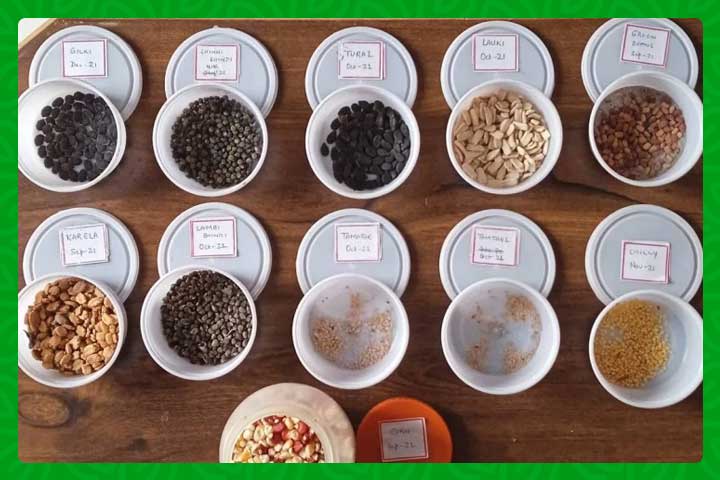
In a remarkable collaboration between British international charity, Voluntary Services Overseas (VSO), and the government, a clarion call resounds across the fields and farms of Zimbabwe. Together, they are urging smallholder farmers to sow the seeds of change by establishing their very own seed banks, fortifying the nation’s agricultural backbone with small grains, drought-tolerant varieties, and pest-resistant marvels.
These seed banks, also known as germplasm banks, are repositories of hope, safeguarding a diverse array of plant species—both natural and engineered—for future generations.
As the 2023/24 summer cropping season approaches, the Meteorological Services Department (MSD) casts a shadow of concern, warning farmers of the looming El-Niño phenomenon. In response, concerted efforts are underway to promote the cultivation and preservation of drought-tolerant seed varieties, securing a sustainable future for Zimbabwean agriculture.
One shining example of this initiative is the Mhakwe Seedbank, a community-led endeavor nestled in the heart of Chimanimani district, Manicaland province. Supported by VSO in collaboration with the government and their implementing partner, Towards Sustainable Use of Resources Organisation, this seed bank stands as a beacon of resilience.
Smallholder farmer Queen Majokwiro, speaking during a recent media tour of the district, passionately advocates for seed banks as pillars of climate-resilient agriculture. She highlights their dual role: “Seed banks allow you to remain a farmer who is food self-sufficient. You preserve your own seed while also having the ability to sell to other farmers. The seeds we keep here are our traditional grains, passed down through generations and thriving in their natural state.”
Majokwiro, a trailblazer in her own right, has established her own seed bank, recognizing their pivotal role in preserving and propagating first-generation seeds.
But VSO’s impact goes beyond just seeds. The organization equips farmers with organic fertilizers, including fermented and organic manure derived from readily available local resources. This accessibility ensures that farmers have access to top-quality seed varieties before the planting season begins, enhancing their agricultural practices.
Simba Guzha, VSO project manager, emphasizes the organization’s mission to empower smallholder farmers in Chimanimani and beyond. “We work with well-established experts and community volunteers, providing them with the knowledge and tools to enhance their livelihoods. Our focus extends to risk assessments, data collection, and action plans,” he explains.
Guzha underscores the transformative power of seed banks as a buffer against climate risks. “Farmers not only store seeds but also exchange them amongst themselves. This system allows for the identification of the most resilient strains, such as those offering drought resistance.”
He also highlights how VSO played a pivotal role during the aftermath of Cyclone Idai by supporting community seed banks. These repositories of resilience were invaluable in helping farmers recover after the devastating cyclone.
Pride Gowere, an Agricultural Advisory and Rural Development Services extension officer, underscores the importance of adopting small grains and sound agronomic practices for household food security. “In a time when the country expects below-normal rainfall, maximizing output from small unit areas through small grain cultivation is paramount. Household food security is the bedrock of national food security,” Gowere asserts.
In 2019, Chimanimani bore the brunt of tropical Cyclone Idai, a catastrophe that displaced 270,000 people and claimed numerous lives, human and livestock alike. It was a stark reminder of the importance of resilience in agriculture, a lesson that VSO and the government have taken to heart.
As the nation stands on the precipice of a new cropping season, the seeds of resilience are being sown not just in the soil but in the hearts and minds of Zimbabwe’s smallholder farmers. With the collaborative efforts of VSO and the government, these seeds hold the promise of a brighter, more secure agricultural future, one where climate-resilience is the bedrock of prosperity.
Original article written By Lorraine Muromo
Stay updated with the latest farming tips and agriculture industry news from Africa by subscribing to our newsletter. Don’t miss out on valuable insights and updates. Follow us on Twitter, LinkedIn, and Facebook to join our farming community and stay connected with us.



















